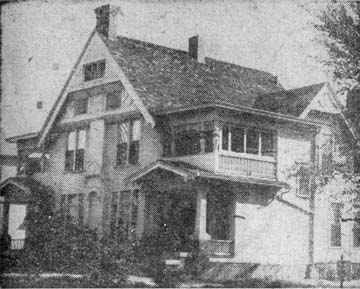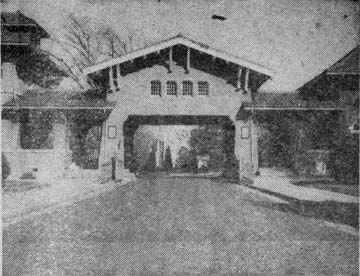
No. 49--Former Dawes home, 1301 H
From this house at 1301 H, little changed since the nineties, was Charles G. Dawes, later to be vice president of the United States and ambassador to Great Britain. catapulted daily by the boundless energy which eventually shot him up to the top in national affairs. Dawes lived in Lincoln only eight years (1887-1894), but he made a quite indelible impression, as Will a red-hot little iron which a housewife goes off and leaves for a few minutes.
His mobile hands reached out in many directions. Everything he touched seemed to thrive, his fingers being to many things what the green thumb is said to be to gardens. His first law suit in Lincoln won a case for some Nebraska farmers who believed they had been discriminated against in the matter of freight rates. Thus he gained the reputation of being an anti-monopolist--which he was not.
Even in his twenties he was organizing utilities and starting banks and building a fortune, which eventually got up into the millions. He was a born financier and gained a wider reputation as such on becoming President McKinley's comptroller of the currency.
For relaxation he loved to sit at the piano and improvise. He put on paper a number of piano and violin duets. The best known, "Melody in A Major" or something of the sort, became popular and often rolled out to meet him in great volume when he came back to Lincoln. Once--not in Lincoln--he had the whole Thomas orchestra come to his home so he could play along with it on the fife.
In a letter to The Journal Mr. Dawes once said that the eight years he lived in Lincoln he had always regarded as the most important in his life, and some of the friendships then contracted were most valued.
